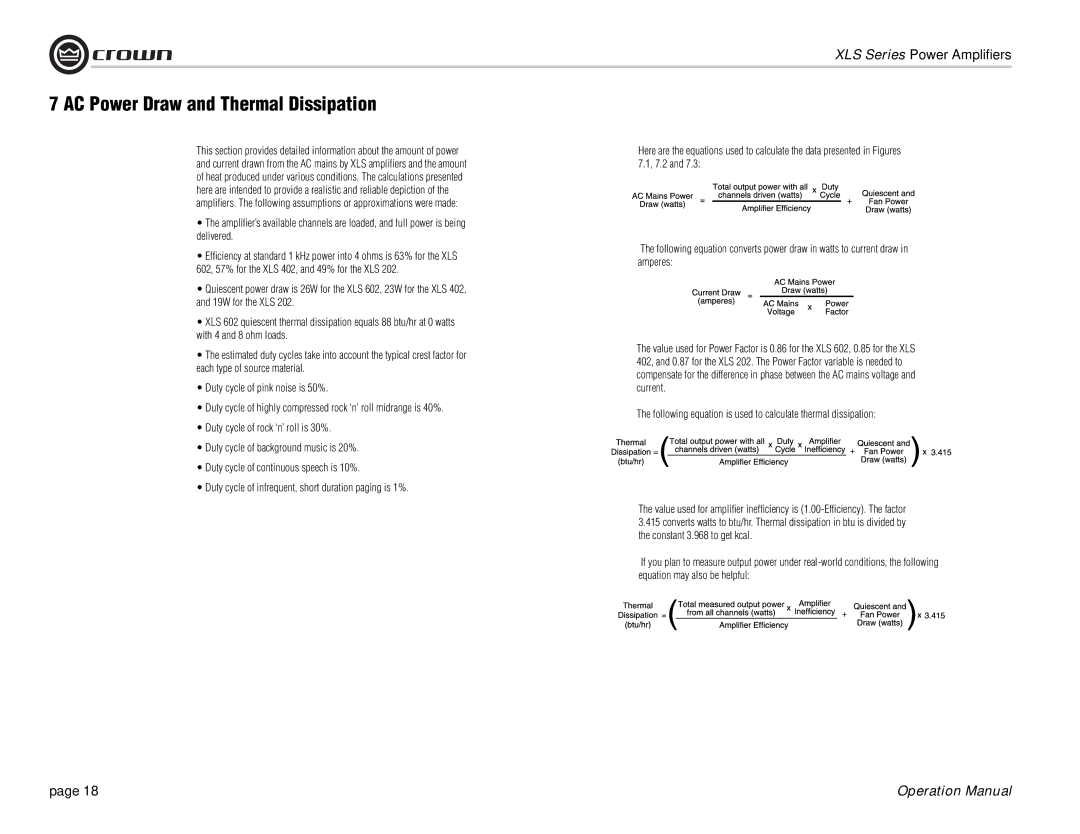
XLS Series Power Amplifiers
7 AC Power Draw and Thermal Dissipation
This section provides detailed information about the amount of power and current drawn from the AC mains by XLS amplifiers and the amount of heat produced under various conditions. The calculations presented here are intended to provide a realistic and reliable depiction of the amplifiers. The following assumptions or approximations were made:
•The amplifier’s available channels are loaded, and full power is being delivered.
•Efficiency at standard 1 kHz power into 4 ohms is 63% for the XLS 602, 57% for the XLS 402, and 49% for the XLS 202.
•Quiescent power draw is 26W for the XLS 602, 23W for the XLS 402, and 19W for the XLS 202.
•XLS 602 quiescent thermal dissipation equals 88 btu/hr at 0 watts with 4 and 8 ohm loads.
•The estimated duty cycles take into account the typical crest factor for each type of source material.
•Duty cycle of pink noise is 50%.
•Duty cycle of highly compressed rock ‘n’ roll midrange is 40%.
•Duty cycle of rock ‘n’ roll is 30%.
•Duty cycle of background music is 20%.
•Duty cycle of continuous speech is 10%.
•Duty cycle of infrequent, short duration paging is 1%.
Here are the equations used to calculate the data presented in Figures 7.1, 7.2 and 7.3:
The following equation converts power draw in watts to current draw in amperes:
The value used for Power Factor is 0.86 for the XLS 602, 0.85 for the XLS 402, and 0.87 for the XLS 202. The Power Factor variable is needed to compensate for the difference in phase between the AC mains voltage and current.
The following equation is used to calculate thermal dissipation:
The value used for amplifier inefficiency is
If you plan to measure output power under
page 18 | Operation Manual |
